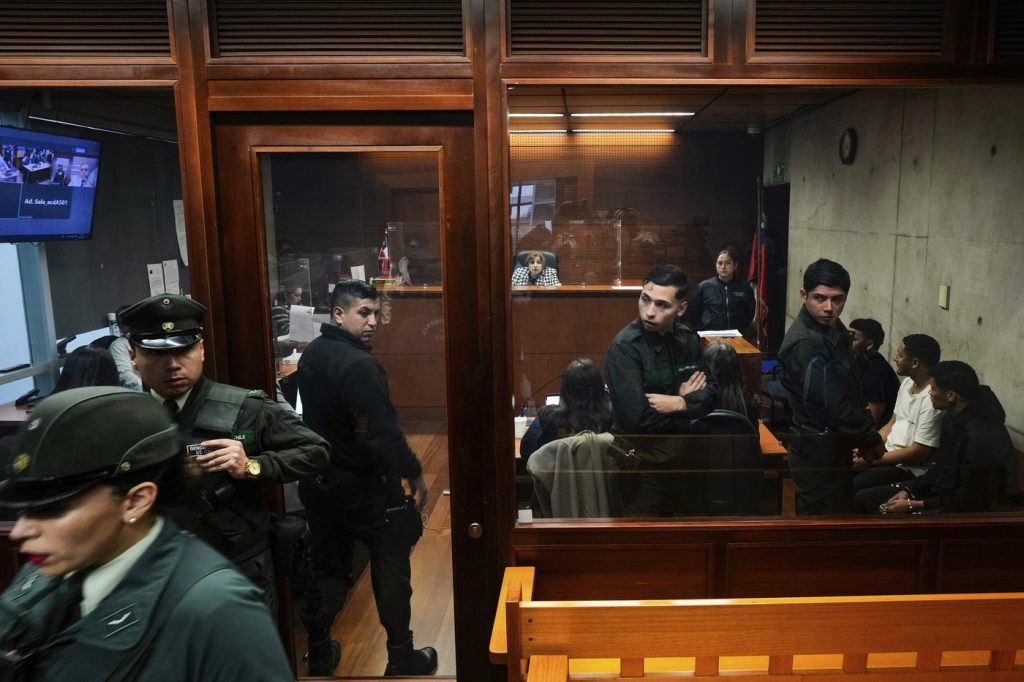ARICA, Chile (AP) — During police raids in Arica, Chile, meticulous spreadsheets uncovered the operational details of the Venezuelan gang Tren de Aragua. These documents cataloged even the smallest expenses, revealing a structured accounting like that of a multinational organization. Costs include $15 for an Uber ride for a drug trafficker, $34 for cleaning supplies related to torture chambers, and various purchases made during lookout shifts. This documentation represents one of the most comprehensive insights into the inner workings of the Tren de Aragua gang, which has been labeled a foreign terrorist organization by former President Donald Trump.
The investigation, led by Chilean prosecutors, has resulted in significant legal repercussions, including hefty sentences for 34 gang members in March. This operation is part of a broader effort by Chilean authorities to dismantle organized crime that has increasingly infiltrated the country as migration from Venezuela surges. This contrasts sharply with Trump’s mass deportation strategy targeting suspected gang members, which analysts suggest overlooks deeper investigations essential for addressing the organized crime phenomena taking root across Latin America.
Transnational criminal organizations like Tren de Aragua have caused a dramatic rise in violence in countries once regarded as safe, such as Chile. The gang has effectively consolidated power, influencing state systems, undermining law enforcement capabilities, and endangering regional stability. Former Peruvian Interior Minister Ruben Vargas pointed out the notable differences between traditional corruption and the current situation, which involves criminal elements exerting control within political systems.
Chile, traditionally viewed as one of Latin America's most secure and stable nations, has struggled to adapt to the emergence of organized crime. The torrent of abductions, dismemberments, and brutal crimes has made it clear that authorities were unprepared. Despite this, the Arica case has become a pivotal model in the fight against Tren de Aragua, demonstrating a successful legal strategy to combat organized crime without resorting to extreme measures seen elsewhere.
Tren de Aragua entered northern Chile in 2021, exploiting the chaos of the pandemic which forced many Venezuelans to seek help from smugglers. The gang quickly established a firm presence in communities such as Cerro Chuño, an area where impoverished Venezuelan migrants were living. Witnesses reported that gang members demanded 'protection' fees from local shop owners, with extreme violence inflicted on those who resisted.
Las Gallegos, the northern Chilean offshoot of Tren de Aragua, was noted for its brutal tactics, including torture. Intercepted communications revealed how fear permeated rival gangs upon the arrival of Tren de Aragua, leading to increased violence. Homicides surged dramatically in Arica, with 215% more incidents reported between 2019 and 2022 as the gang terrorized the community.
Amid the scrutiny, investigations used recovered records to demonstrate the organizational structure of Tren de Aragua. The inner workings revealed details about their income sources, notably human smuggling and sex trafficking. The operatives within the gang reported salaries, bonuses, and debt structures that depict a well-oiled criminal network. Investigators employed various techniques, including using surveillance to decipher coded communications among gang members, showcasing the gang’s adaptability and resourcefulness.
Chilean authorities made significant progress in reducing violent crime rates, primarily through the indictments of gang members. As a result, Arica's homicide rate dramatically fell from 17 per 100,000 people in 2022 to 9.9 in the following year. The legal actions taken against 34 individuals involved charges ranging from aggravated homicide to human trafficking, marking a pivotal shift in Chile's approach to organized crime.
However, the fight against Tren de Aragua continues as law enforcement must stay vigilant. Reports indicate that the gang maintains connections and continues operations, even from behind bars. Experts emphasize that organized crime will evolve and adapt, highlighting the need for authorities to implement proactive measures rather than reactive ones.
As Chile prepares for upcoming elections, the public’s concerns about safety and crime are at the forefront. The political landscape is shifting, with candidates pledging to take a hard stance against crime, reflecting a growing desire for increased security among citizens.










